
Marcus Aurelius was born in Spain in 121 into an aristocratic family of patrician origin. By father and mother, his ancestors belonged to the senatorial class.
As a child, having studied the Greek language, Mark actively improved in oratory. The subject of his special interest was philosophy, he was attracted by the direction of the cynics, their denial of social differences and simplicity in everyday life, which Aurelius mentions in his work Meditations.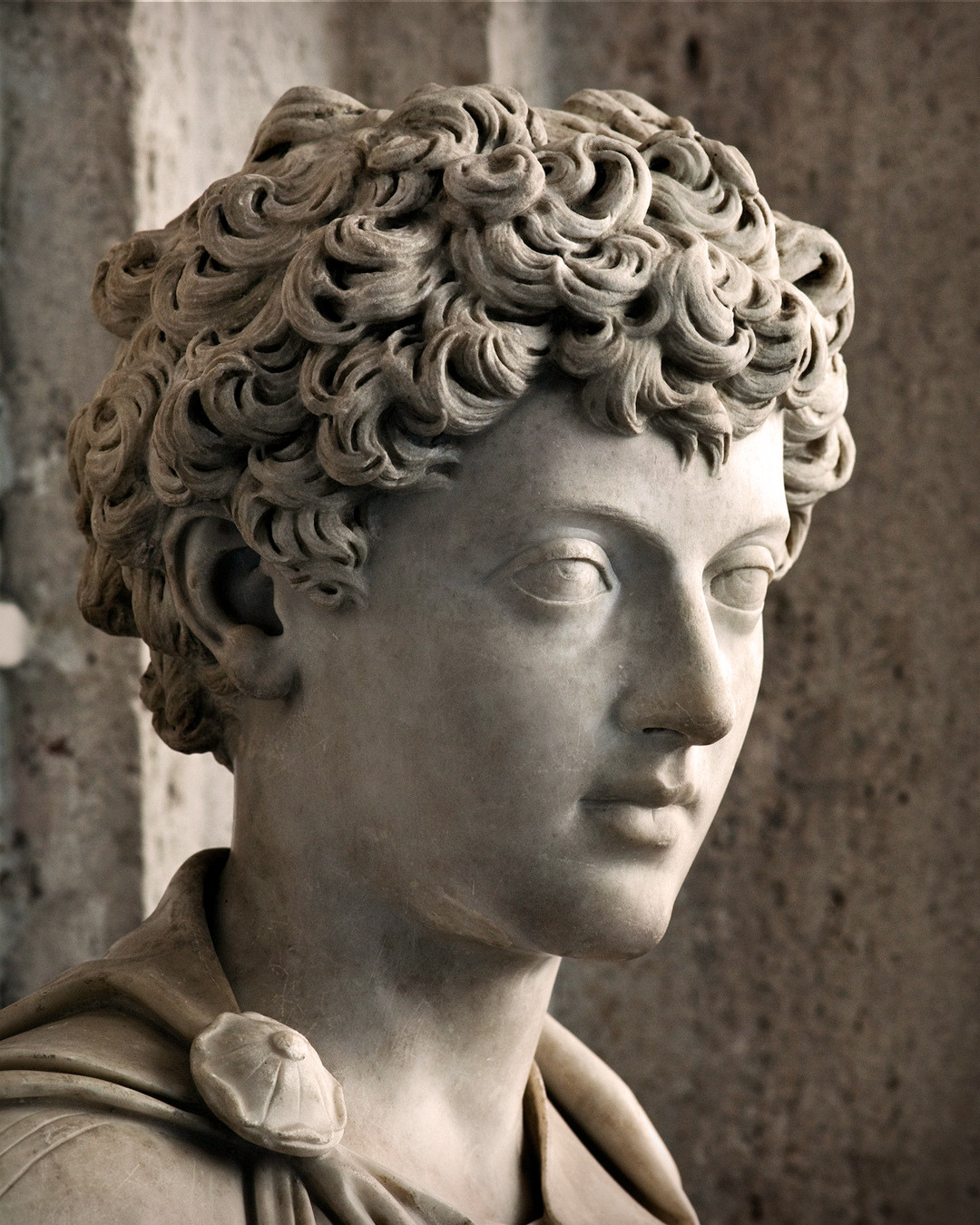

Young Marcus Aurelius, Capitoline Museums (139-144)
Emperor Hadrian, wishing to see Mark as emperor in the future, suggested that Aurelius Antoninus (the future emperor Antoninus Pius) adopt Mark and Lucius Verus and subsequently transfer imperial power to them. Antoninus Pius was an excellent emperor and role model for the young Mark, as he later wrote about in his writings. Antoninus married Mark to his daughter, who is known as Faustina the Younger, taught him in detail and instructed him in the art of government.
At this time, Marcus Aurelius was influenced by the prominent Stoic philosophers Apollonius of Chalcedon and Quintus Junius Rusticus. As Aurelius himself admitted in his Meditations, he learned a lot from them that helped him effectively manage the empire.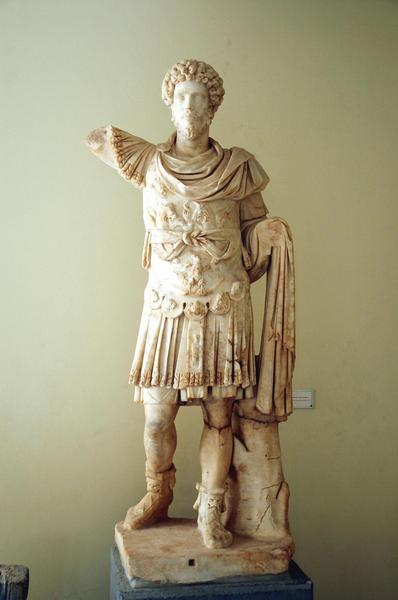

Statue of Marcus Aurelius, 161 Museum of the City of Leptis Magna
After the death of Antoninus Pius in early 161, Marcus Aurelius and Lucius Verus succeeded to the throne as co-rulers. Initially, the actions of the emperors to boost the economy, fight poverty and strengthen the army brought success and were greeted with approval by the population of the empire. But in the future, the difference in worldview between the stoic views of Aurelius and the exceptional wastefulness of Verus led to unpleasant consequences.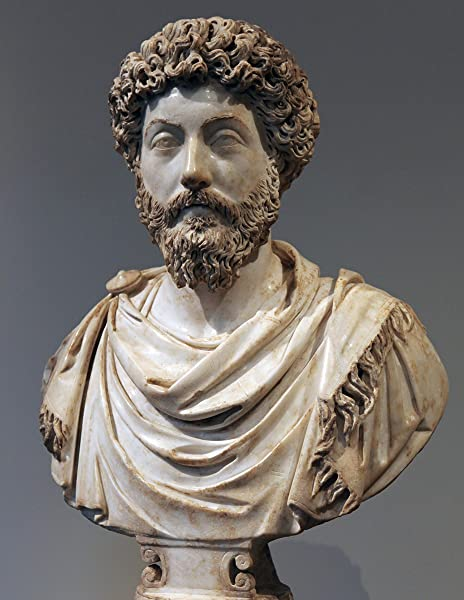

Bust of Marcus Aurelius
Considering that Rome was weakened, the Parthian king Vologez attacked the Roman province of Syria and Armenia, allied to Rome. The war lasted 5 years and ended with the victory of Rome thanks to the skill of the Roman generals and the quality management of the empire by Marcus Aurelius, who was in Rome during the war. The results of the war were favorable for Rome, the Parthians during the life of Aurelius did not make any more attempts to attack the Roman possessions.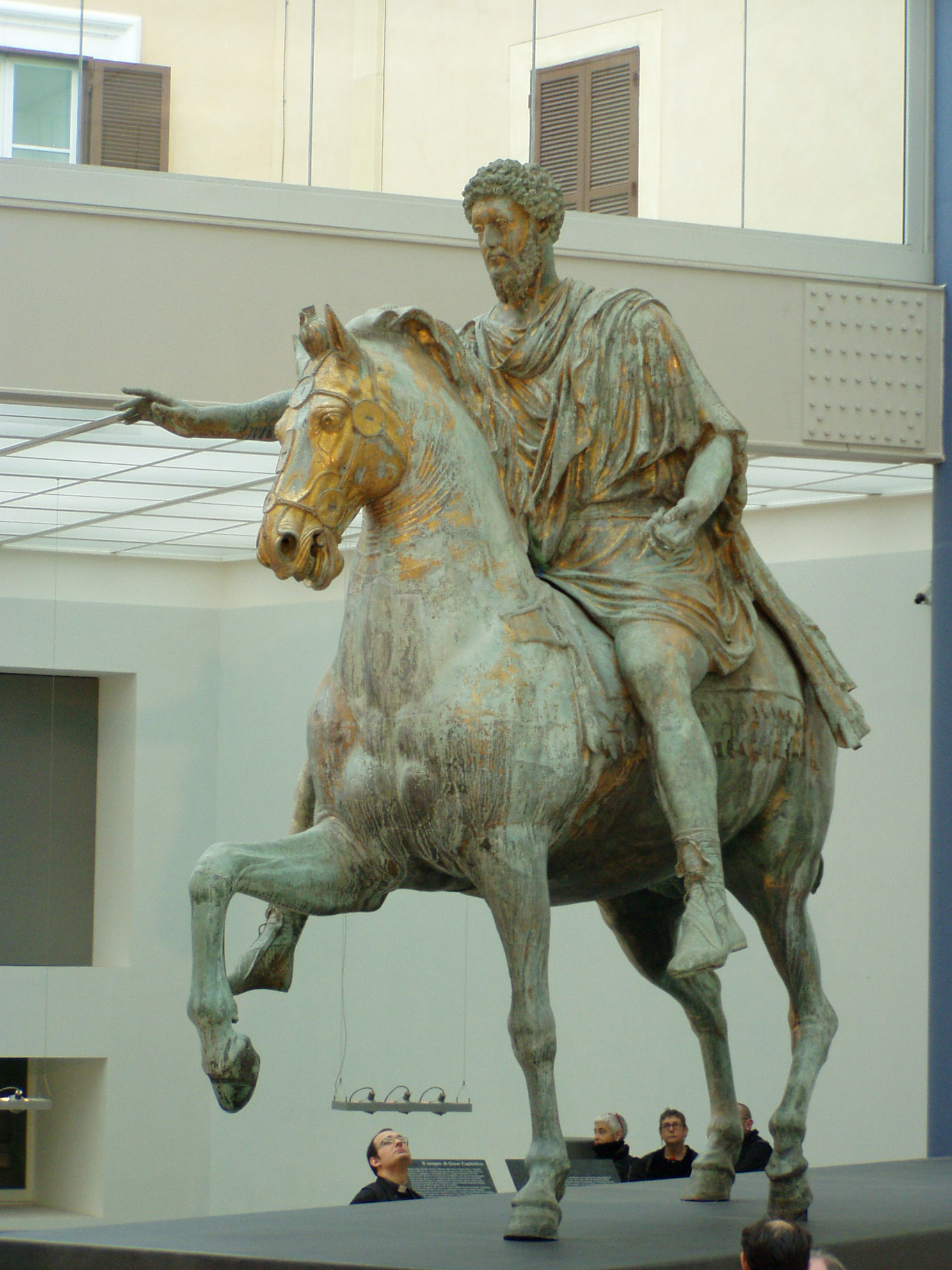

Lifetime equestrian statue of Marcus Aurelius, 175
These events were also reflected in the numismatic monuments of that time. An excellent aureus minted in 168 shortly after the end of the Parthian War was sold on Violity. The obverse depicts a bust of Marcus Aurelius with the victorious title of Armenian and Parthian the Greatest,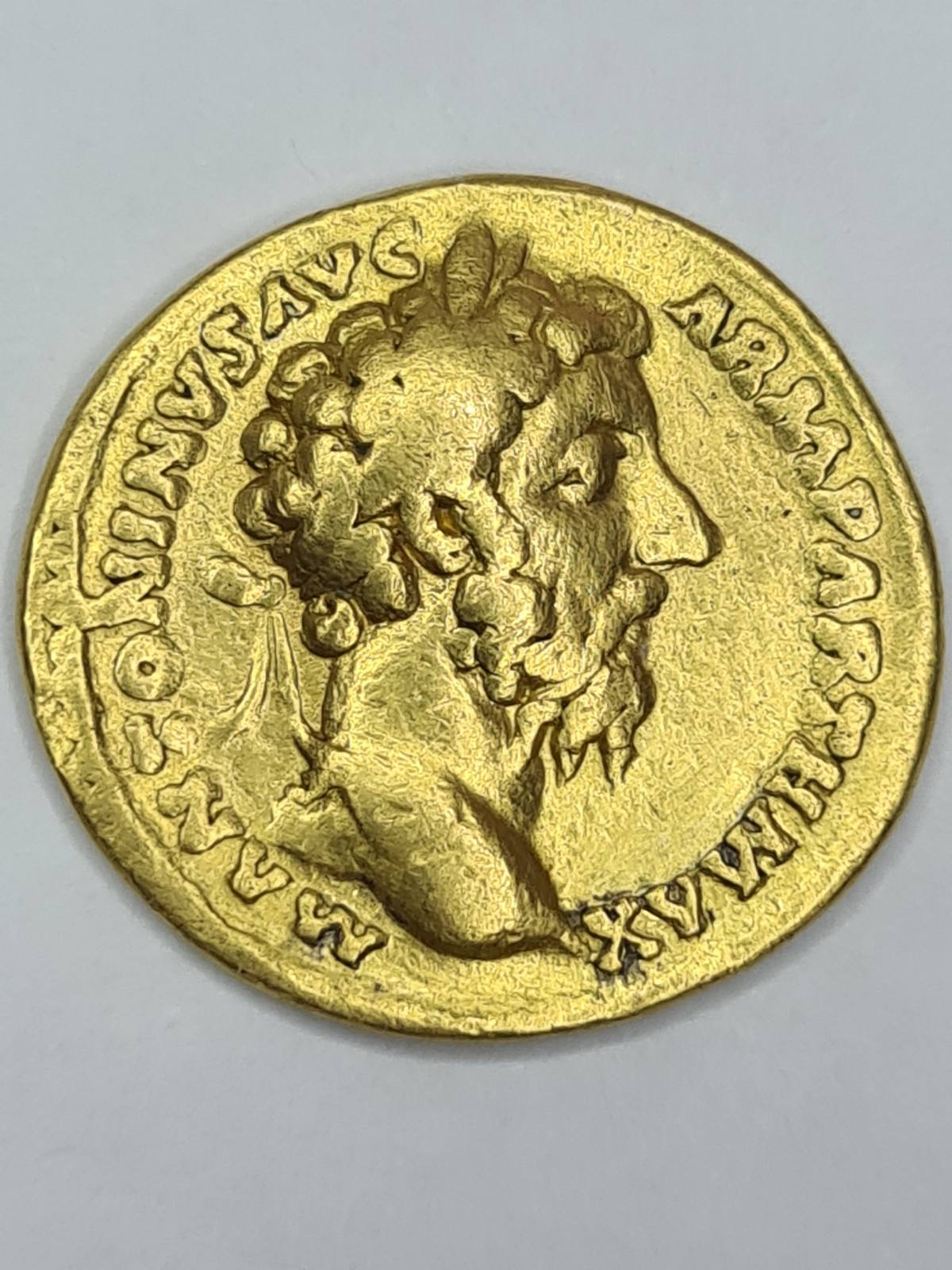
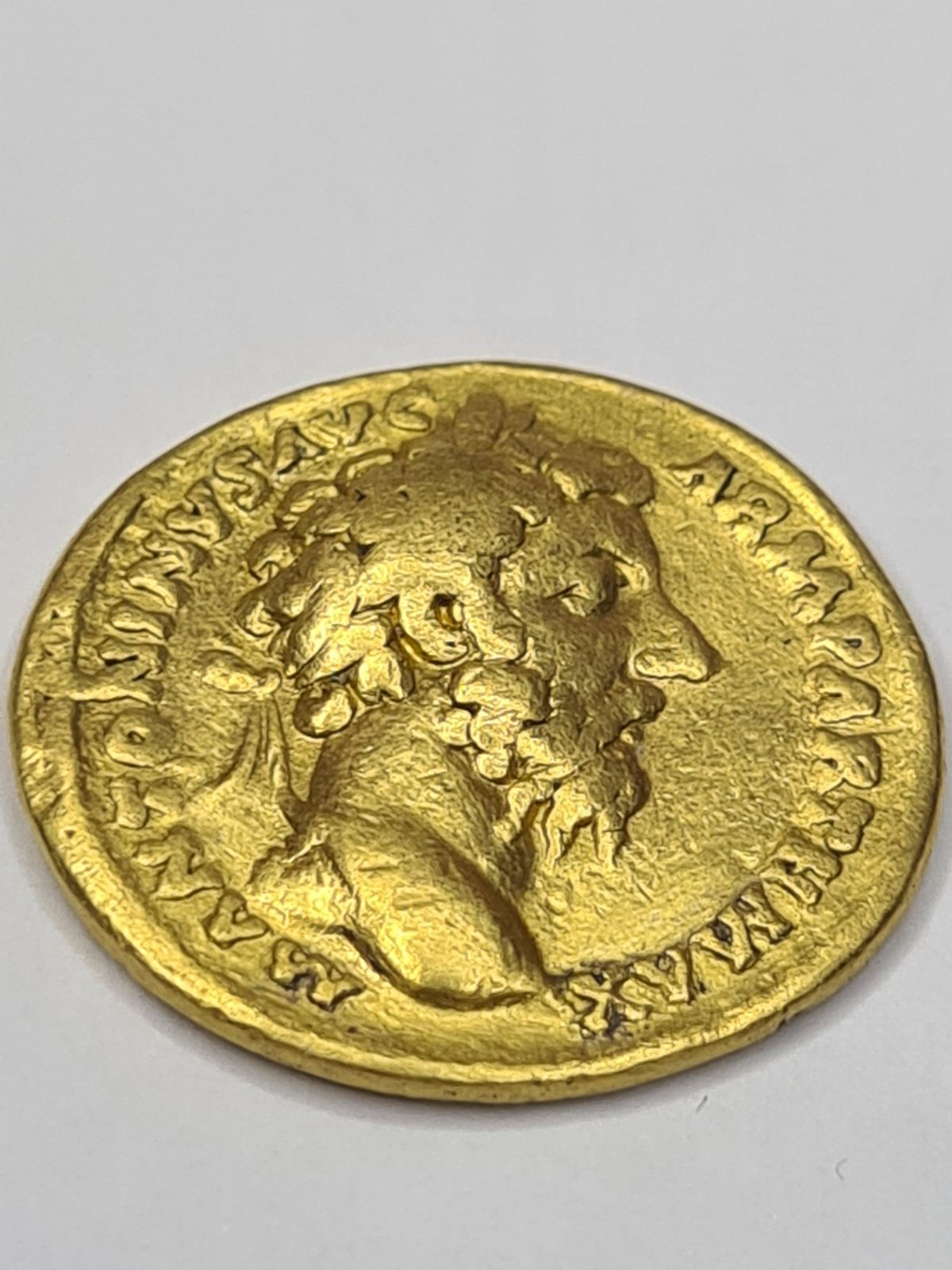
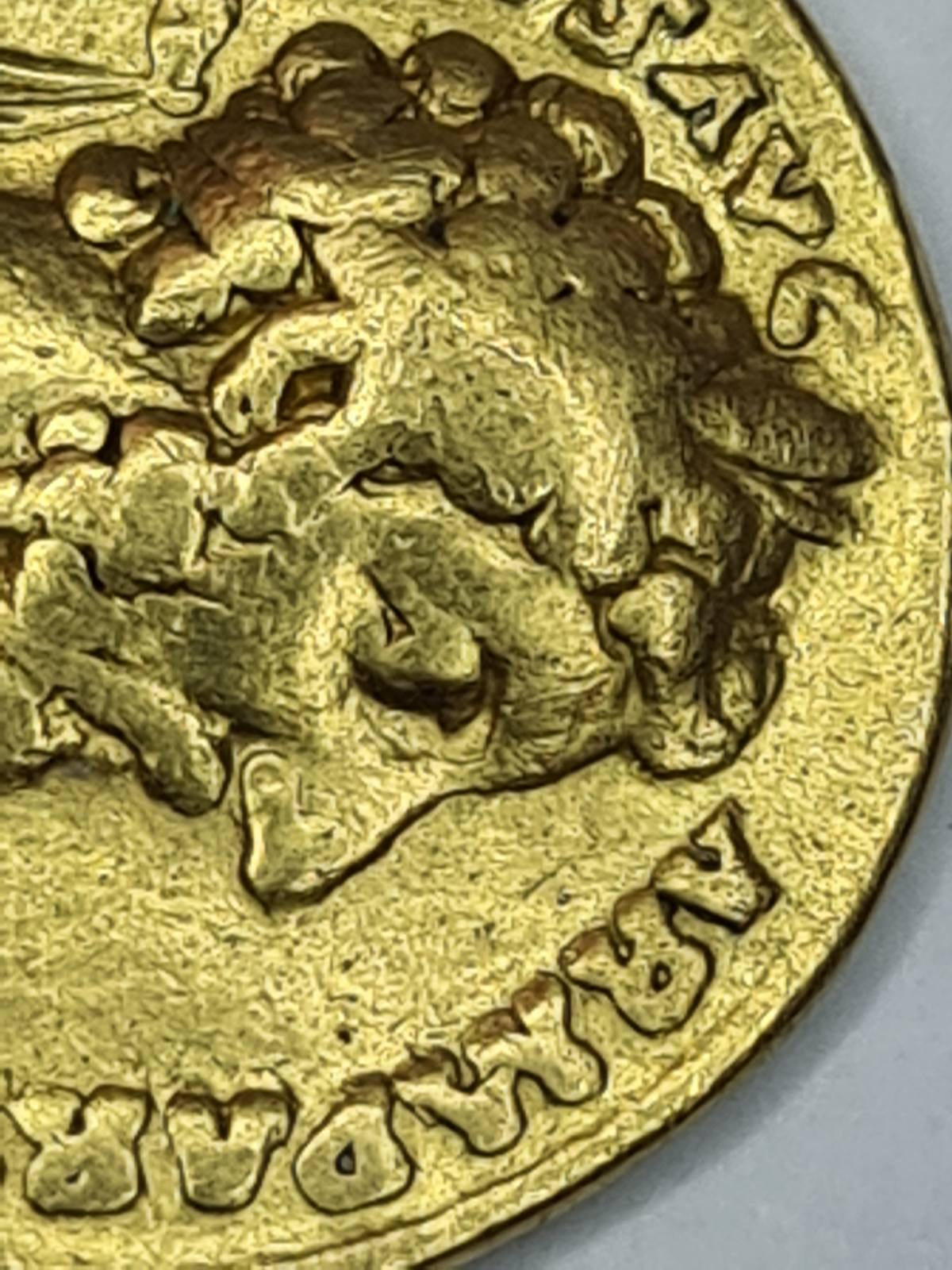

Aureus of Marcus Aurelius, 168
violity.com

Aureus of Marcus Aurelius, 168
violity.com

Aureus of Marcus Aurelius, 168
violity.com
on the reverse, the personification of impartiality - the most important component of the views of Marcus Aurelius on the management of the empire.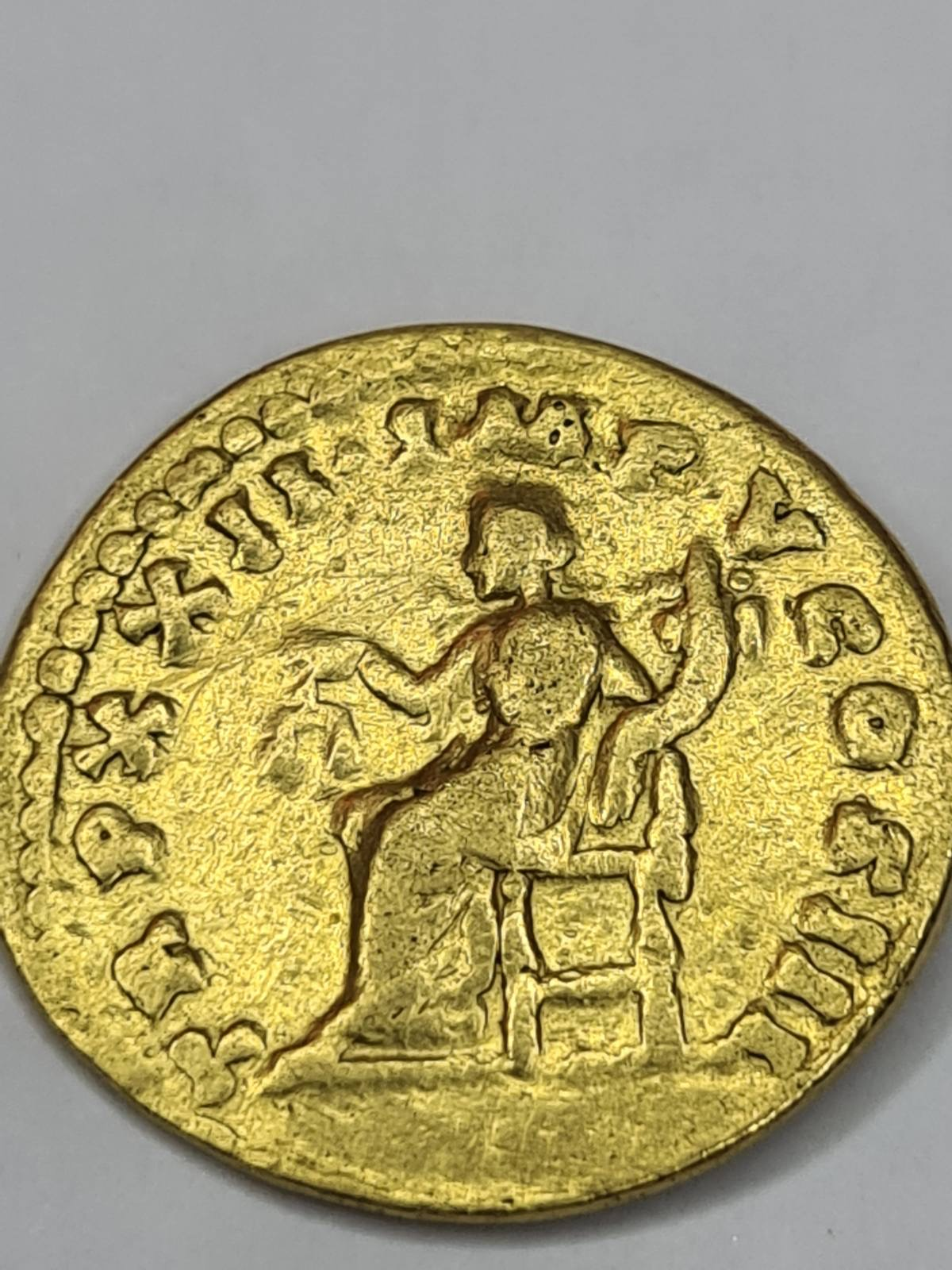
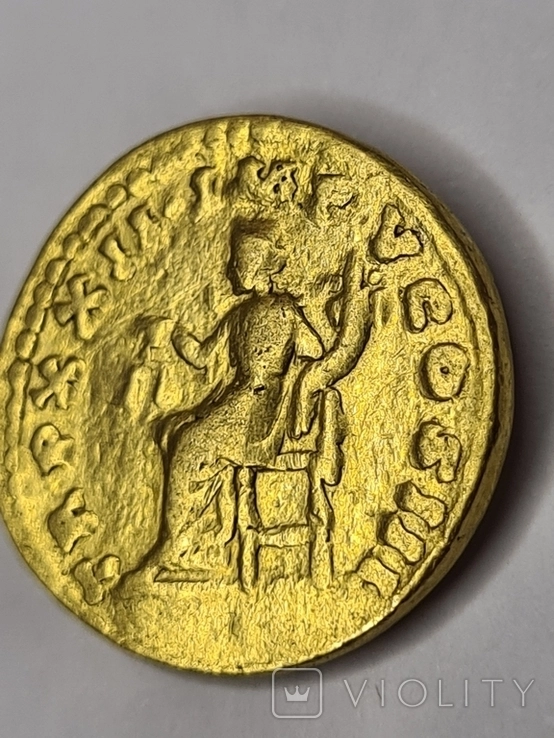

Aureus of Marcus Aurelius, 168
violity.com

Aureus of Marcus Aurelius, 168
violity.com
